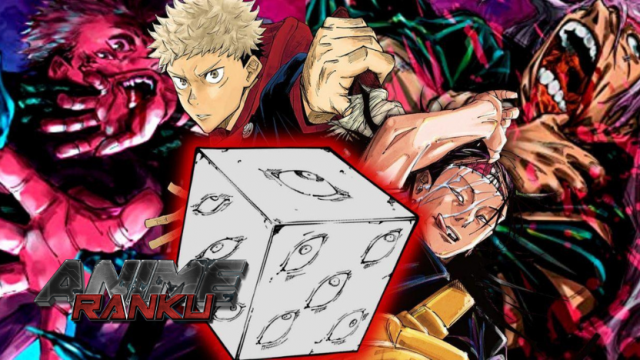There are some very terrible opponents in Jujutsu Kaisen who aren’t hesitant to instantly kill innocent bystanders or sorcerers. The most potent of them is Kenjaku, an ancient sorcerer whose mission was to hinder mankind in order to bring in a new era of Jujutsu. His most notorious victim was Noritoshi Kamo, for whom he used his cursed method to implant his brain into bodies in order to possess them; as a result, Kenjaku gained notoriety as the world’s most wicked sorcerer. The Cursed Womb: Death Paintings were made by Kenjaku when he was inside Noritoshi from a blend of sorcerers and human blood, starting his existence as a dreadful father.
The abusive and expendable outlook on children is a central conflict within Jujutsu Kaisen, with no character being unaffected by this societal view. Gojo Satoru and his students are fighting tooth and nail to stop the previous generation from harming the youth, but Kenjaku represents all they are opposing. This makes him their most formidable opponent — as well as the most important one for them to defeat.
Kenjaku of Jujutsu Kaisen is an abusive parent.

While the concept of Kenjaku being a parent at all could be considered far-fetched, he did create nine half-human special-grade cursed objects (the Cursed Womb: Death Paintings) and played a role in protagonist Itadori Yuji’s birth. The ancient sorcerer abandoned Choso and the eight other Death Paintings as he deemed them failures, and treats Itadori as an expendable tool, putting the child through endless trauma for the sake of his selfish experimentation. What is an abusive parent if not someone who neglects their duty to protect and raise their child, harming them instead?
This theme runs through Jujutsu Kaisen and is repeated in many characters’ backstories. An extremely direct example is Maki and Mai Zenin’s childhood experience. Their father, Ogi, only cares about his status within the family and has a very cynical, traditional mindset. The sisters were born untalented in the realm of Jujutsu, and because of this Ogi resents both of them and blames them for him not being chosen as the new head of the Zenin Clan.
To gain further status, Ogi even offered to frame his children and execute them personally. Rather than serving his duty as a parent, the father instead believed his daughters only existed for his gain. He even went as far as to tell them both that children shouldn’t hold their parents back and tried to leave the girls for dead.
Jujutsu Society Frequently Sacrifices Children Instead of Raising Them

The nature of parental abuse in one household is a metaphor for the crimes of Jujutsu society as a whole. Children exist to save the elders, who don’t put any thought into raising the next generation. As soon as something or someone who threatens the elders appears, they must be executed no matter their age. Itadori and Yuta Okkotsu are both examples of this as, before they had even been established as a threat, the elders decided their fate on possibility. Master Tengen is the largest culprit of the mindset that children have no worth outside of selfish benefit.
To maintain their human form, Tengen must merge with a teenage Star Plasma Vessel every 500 years to stop this evolution. However, the most recent vessel, Riko Amanai, was killed before merging with Tengen. The outcome was minimal, with the elder resembling more of a cursed spirit but overall being okay with this. The children weren’t sacrificed out of necessity — only to repeat the pattern in Jujutsu society that suggests children must continually sacrifice their youth to protect those in power. This makes Riko a standout example of lost youth within Jujutsu Kaisen and demonstrated how there is no real good vs bad within the series.
Kenjaku, is a parallel to Master Tengen. While they seem to appear as opposites, both consistently sacrifice children to either benefit themselves or their ideal society. This can be seen in the way Kenjaku views Choso and his brothers. Kenjaku expected great things from them, and when they failed his expectations he abandoned them completely, giving up on them and losing interest. Instead of nurturing his children, the sorcerer threw them away because they were no longer of any worth to him. Kenjaku sees his children as tools, and had already decided they were expendable before even knowing so.
The main evil in Jujutsu Kaisen isn’t any antagonist, but really how children are mistreated, traumatized and disposed of for personal gain. Kenjaku himself is a literal example of this — freely abusing Choso, Itadori and his other children until they’re of no use to him — as well as a metaphor for everything wrong with the Jujutsu world. He is the central antagonist as, in defeating Kenjaku, the students of Jujutsu High are also challenging society itself.















Leave a Reply